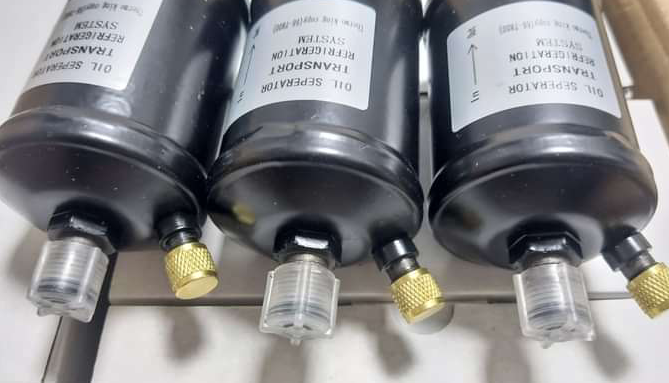
When it comes to maintaining the performance of industrial compressors, a critical component often overlooked is compressor oil. These hardworking machines play a pivotal role in various industries, from manufacturing to refrigeration, and understanding the significance of compressor oil is key to ensuring their longevity and efficiency.
Compressor oil, also known as lubricating oil, is a specialized type of lubricant formulated to meet the unique demands of compressors. It serves a multifaceted role, providing lubrication, cooling, and sealing functions within the compressor system. Compressor oils are carefully engineered to withstand the high temperatures, pressures, and mechanical stresses that compressors endure. They are also designed to prevent corrosion and ensure optimal compressor performance.
Lubrication:
One of the primary functions of compressor oil is to provide lubrication for the moving parts of the compressor. Compressors consist of various components, such as pistons, bearings, and rotors, that operate at high speeds and under heavy loads. Without proper lubrication, these parts would quickly wear out, leading to reduced efficiency, increased maintenance costs, and potential downtime.
Compressor oil forms a protective film on these components, reducing friction and wear. This, in turn, ensures smoother operation and extends the lifespan of the compressor. Moreover, the right compressor oil minimizes energy consumption and maximizes efficiency by reducing power losses caused by friction and heat.
Heat Dissipation:
Compressors generate a considerable amount of heat during operation. Excessive heat can lead to a host of problems, including decreased efficiency and even component failure. Compressor oil is designed to act as a heat transfer medium, carrying heat away from critical components and dissipating it in the compressor’s cooling system.
By efficiently dissipating heat, compressor oil helps maintain the compressor’s operating temperature within a safe range. This, in turn, improves the compressor’s efficiency and reduces the risk of overheating, which could result in costly repairs and unscheduled downtime.
Sealing:
Another crucial role of compressor oil is to act as a sealing agent. Compressors work by compressing air or gas, and it’s essential to keep this compressed medium contained within the compressor system. The oil helps create a tight seal between the moving parts and the compressor’s chamber, preventing leaks and maintaining the desired pressure levels.
Effective sealing is vital in applications where compressed air or gas is used to power machinery, such as in pneumatic tools or manufacturing processes. It ensures that the compressed medium is available when needed and that no energy is wasted due to leaks.
Corrosion Protection:
Compressors often operate in challenging environments, where exposure to moisture and contaminants is common. Without proper protection, the internal components of a compressor can succumb to corrosion, leading to premature wear and reduced performance.
Compressor oil is specially formulated with additives to inhibit corrosion. It forms a protective layer on metal surfaces, preventing rust and corrosion from taking hold. This protection extends the compressor’s lifespan and minimizes the need for costly repairs or replacements.
Choosing the Right Compressor Oil
Selecting the appropriate compressor oil is essential for maintaining the health of your compressor. Not all compressor oils are created equal, and different compressors have varying requirements. Here are a few factors to consider when choosing compressor oil:
1. Viscosity: Compressor oil comes in different viscosity grades. Choosing the right viscosity grade ensures that the oil can effectively lubricate the compressor’s components at the operating temperatures and pressures.
2. Additives: Compressor oils may contain additives to improve their performance. For instance, anti-wear additives can further protect components from friction and wear. Consult the compressor manufacturer’s recommendations to determine the required additives.
3. Oil Change Intervals: Regular oil changes are crucial to maintain compressor health. The manufacturer’s guidelines should be followed for oil change intervals to ensure optimal performance.
4. Compatibility: Ensure that the compressor oil you choose is compatible with the materials and seals used in your compressor. Using an incompatible oil can lead to damage or leaks.
Regular Maintenance and Oil Analysis
In addition to choosing the right compressor oil, regular maintenance and oil analysis are essential. These practices help identify issues before they become critical and extend the life of the compressor. Here are some maintenance tasks to consider:
1. Oil Sampling and Analysis: Periodic oil analysis can reveal signs of wear, contamination, or other issues. This allows for proactive maintenance and prevents unexpected failures.
2. Oil Filtration: Installing effective oil filtration systems can help remove contaminants and extend the life of the compressor oil. Clean oil reduces wear and improves efficiency.
3. Oil Level Monitoring: Ensure that the compressor always has the right oil level. Too much or too little oil can lead to performance issues and damage.
4. Oil Change and Filter Replacement: Follow the manufacturer’s guidelines for oil change intervals and filter replacement to maintain peak compressor performance.
Compressor oil is the unsung hero of compressor performance, providing essential lubrication, heat dissipation, sealing, and corrosion protection. Neglecting the role of compressor oil can lead to costly repairs, decreased efficiency, and unscheduled downtime.
To ensure the longevity and efficiency of your compressors, it’s crucial to choose the right compressor oil, perform regular maintenance, and conduct oil analysis. By taking these steps, you can keep your compressors running smoothly and reliably, ultimately saving time and money while ensuring uninterrupted operations in your industrial processes.
Don’t underestimate the impact of compressor oil; it’s a small investment that can yield significant returns in the form of reliable and efficient compressor operation.

Leave a Reply